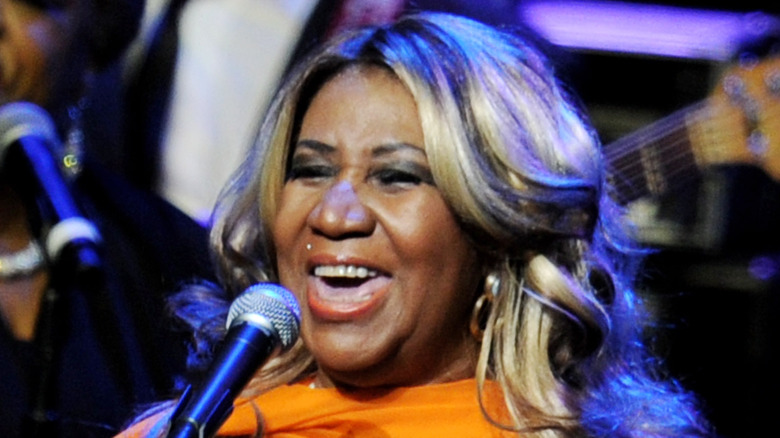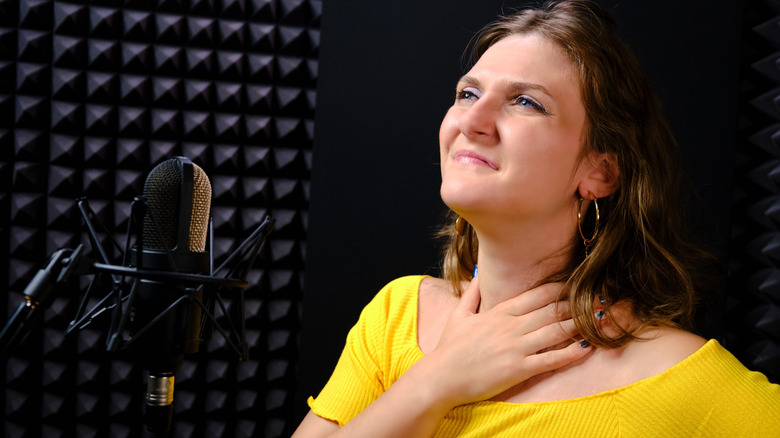What Happens To Famous Singers' Voices As They Age?
Once in a while, a rare iconic voice comes around that lives on through the years and continues to resonate with audiences across all generations. Aretha Franklin, Whitney Houston, and Madonna are a few names that come to mind. It's not uncommon for musical artists in the spotlight to rebrand themselves over the course of their careers as they change and evolve in their style or genre. But after so many years of being vocally in demand by the public, can a singer's voice physically change as they age?
Kristina Seleshanko, author of "Singing Secrets," explains that our body's ability to create sound involves many working parts (via Voice Studio). Beginning with an intake of breath, our vocal cords remain closed until enough air has been gathered in the lungs. They then subsequently open up to release that buildup of air. At the end of a note, our vocal cords slap back together as they close back up. It is this slapping action, as well as the movement of air through the vocal cords, that produces sound when we sing. Depending on the degree of force and speed at which the vocal cords come back together, we can produce variations in both volume and pitch in our singing voice.
But the ability to carry a tune is not just the work of the vocal cords. Our core, back muscles, tongue, teeth, lips, rib cage, and diaphragm all play a part in the process (via London Singing Institute).
Nodules, scarring, and tonal changes can all result from years of voice use
The development of vocal issues for singers who have spent the bulk of their lives in entertainment is not uncommon. Film and Broadway star Julie Andrews is just one example of many. She developed lesions on her vocal cords in her later years that made it difficult to continue performing (via Biography).
Just like other muscles in the body, the function of our vocal cords can decline as we grow older. Dr. Steven Zeitels, professor of laryngeal surgery at Harvard Medical School, told NBC News, "As the vocal membranes are used more, they become fibrous and stiff with a diminished amplitude of vibration." Having performed hundreds of vocal procedures on numerous famous singers and musicians, Zeitels has seen firsthand how the vocal cords can become damaged from excessive use over time. Some of the repercussions include the development of nodule growths, bleeding, scarring, and changes in vocal tone.
Although aging may not be within our control, there are some strategies professional singers can use to help preserve the health and safety of their voices. Experts at Live Science stress the importance of regularly staying hydrated and avoiding potentially damaging habits, such as smoking, drinking, and caffeine consumption. Additionally, it is important to give your voice well-earned breaks throughout the day. Refrain from straining your voice by yelling, and avoid excessive clearing of the throat. You may also want to consider keeping a humidifier in your home to help prevent a dry or sore throat.


